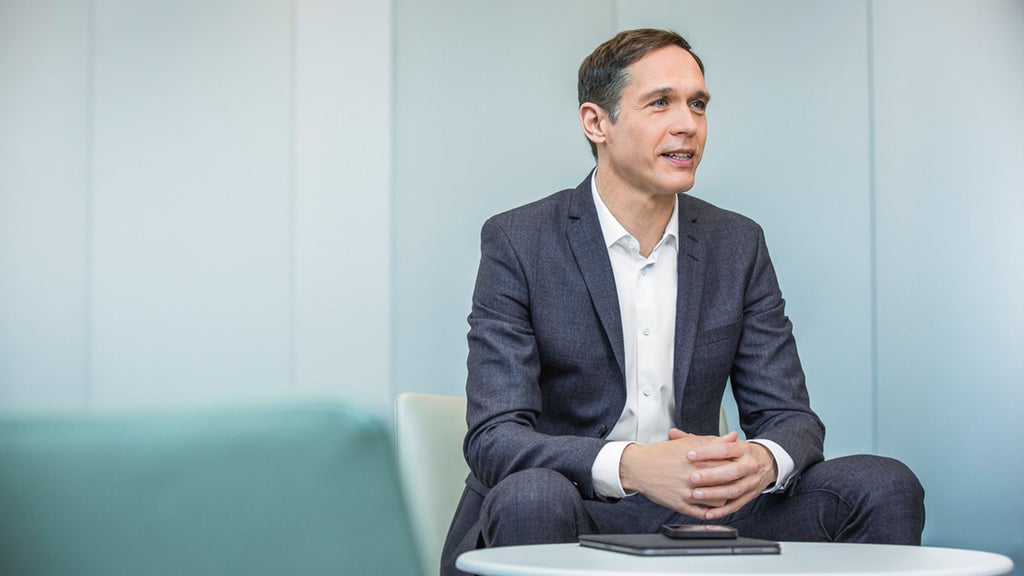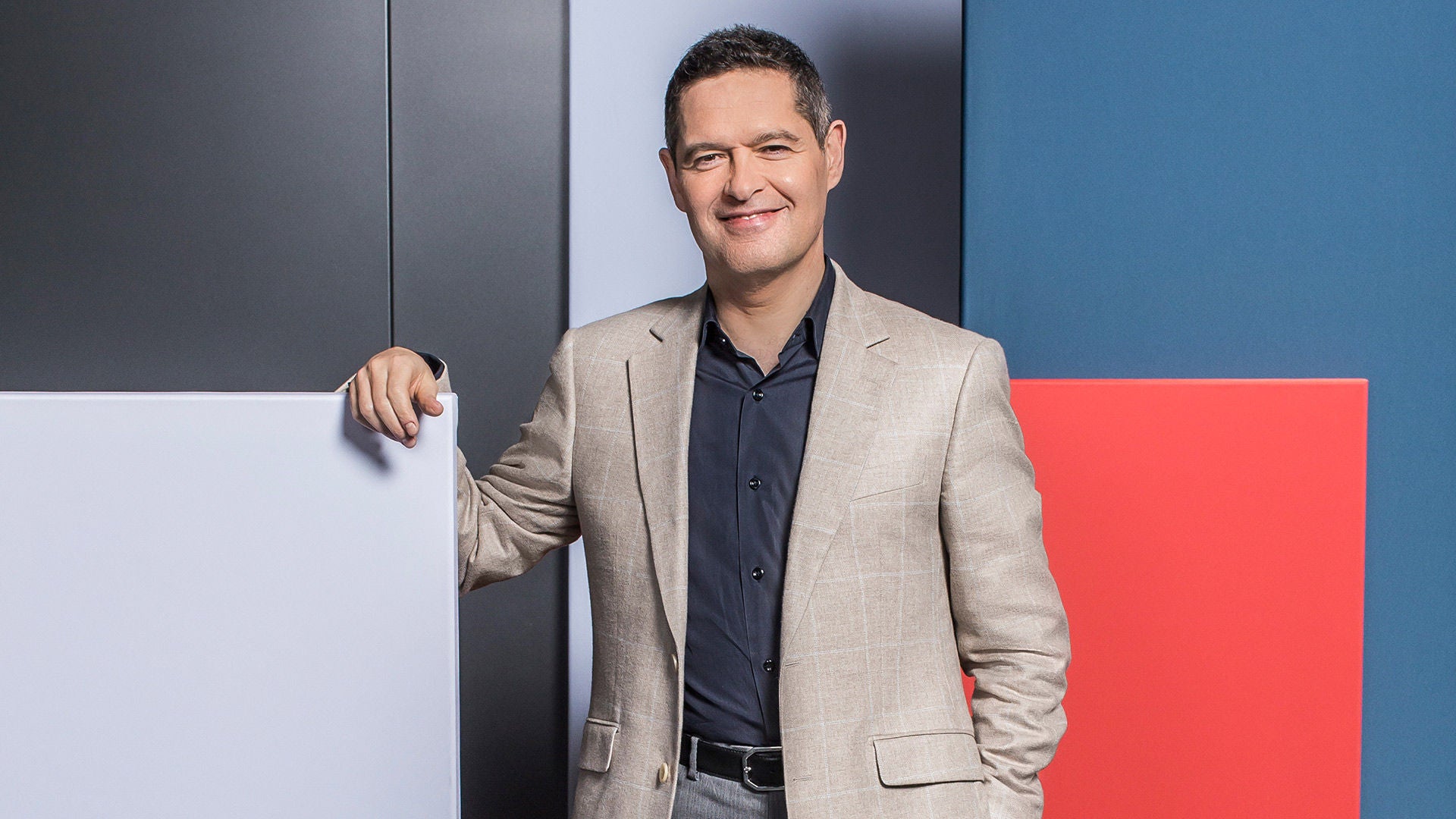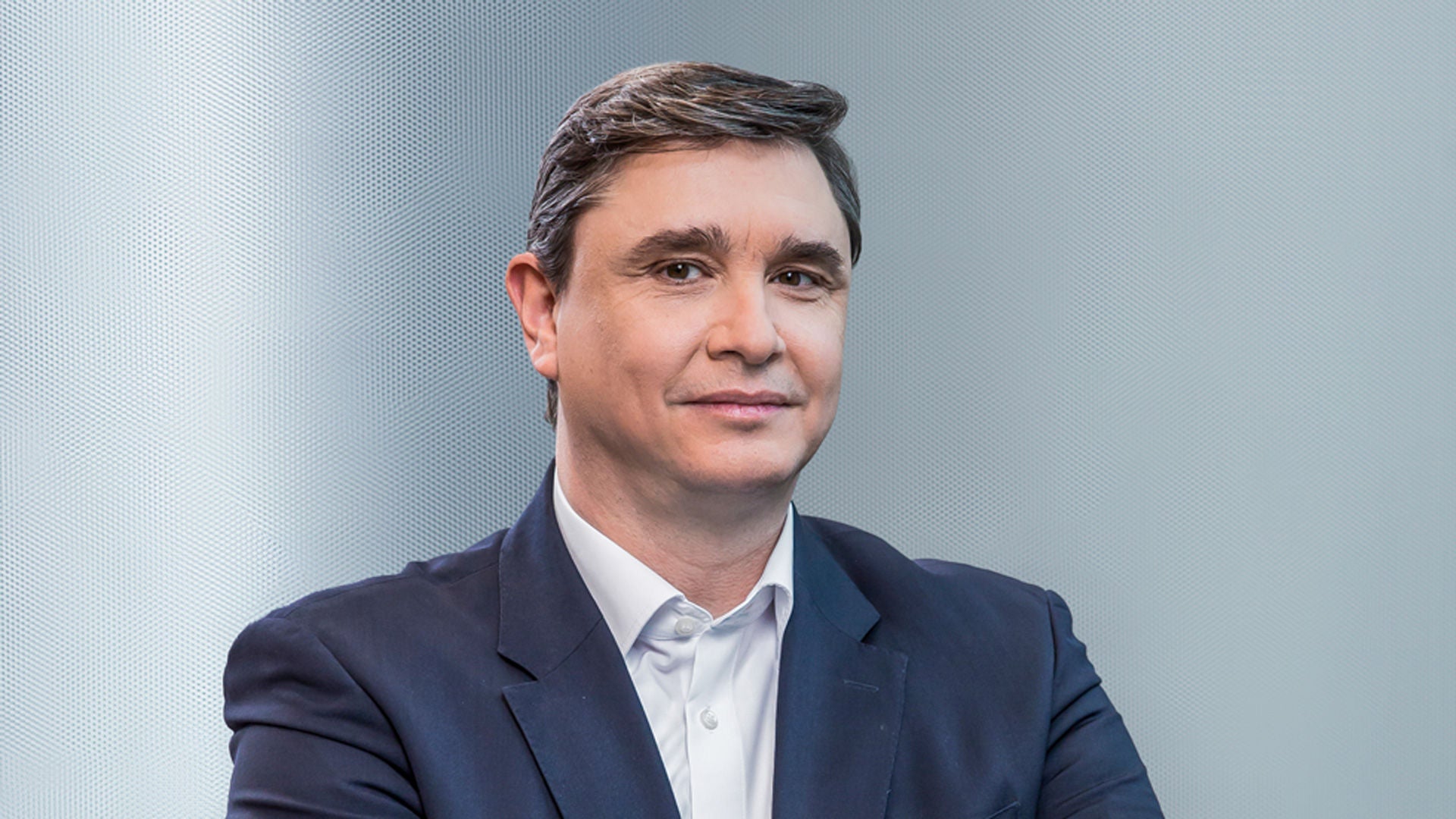“The Four Rings have a clearly defined plan for the future.”
missing translation: fa.article-intro.reading-time – 03/17/2022

Gerd Walker, Member of the Board of Management of AUDI AG, Production and Logistics
Gerd Walker, Member of the Board of Management of AUDI AG, Production and Logistics
You first started at Audi in 1997 as a student employee. You then held various positions both for the Four Rings and the Volkswagen Group and have been back in Ingolstadt since February as a Member of the Board of Management. What does the Audi brand mean to you?
It feels a little like returning home after being away on an eventful journey. Although geographically speaking it was “only” Wolfsburg and Győr in Hungary, I learned a great deal and gained important experience. I’m really pleased to be back in Ingolstadt now. This is where I started out as a student employee when I was 27. For me, Audi is the most exciting brand in the Volkswagen Group, because of its highly diverse product portfolio among other reasons.
In 2030, Audi wants to sell three million vehicles per year. At the same time, combustion-engine vehicles will gradually be replaced by electric models. What do these changes mean for Production and Logistics?
Setting this goal sends out a really strong message – both internally and externally. The Four Rings have a clearly defined plan for the future. In view of market forecasts, our attractive product portfolio and our flexible and highly capable team, it’s certainly feasible. The transformation is a long road, but we have already taken important steps. The Brussels plant has already been exclusively producing electric cars since 2018, we recently produced the 250,000th electric motor in Győr and in Ingolstadt we are gearing up for the Audi Q6 e-tron, including our own battery assembly.
Audi has been committed to enhancing environmental protection for years, primarily at its plants. Which additional measures are planned in this regard in 2022?
We already embarked upon an ambitious environmental program in Production and Logistics a couple of years ago with Mission:Zero. A central goal of this program is to operate our production sites with a net carbon-neutral* footprint by 2025 at the latest. This has already been achieved for Audi Brussels and Audi Hungaria, as well as for the production of the Audi e-tron GT at the Böllinger Höfe production facility in Neckarsulm. But it is also quite clear that decarbonization is not the sole focus. The efficient handling of resources, economical water usage and protection of biodiversity are of at least equal importance. I would like to concentrate on this in particular and am delighted that so much groundwork has already been done in this area that we can now draw on.
At Audi Brussels, for instance, our plan is to cease using high-quality drinking water in the future to cover our process water requirements for production. Instead, we will use reprocessed wastewater from the neighboring municipal sewage plant into which our wastewater also flows. This has the potential to reduce the site’s drinking-water consumption by about 80 percent. Audi México has led the way in this regard, by the way, and has already been producing vehicles without any wastewater since 2019. In addition, we will present our own biodiversity index in 2022, which describes the animal and plant biodiversity at our production sites.
You know Audi from many different perspectives. How helpful is that for your new responsibilities?
This knowledge is especially helpful now on my return. I have good connections and kept in close contact with some of my Audi colleagues throughout the entire time. At the same time, I benefit enormously from my experiences over the past years, especially in terms of steering the entire Group-wide production network. Both collectively form the basis for one of my most important tasks: striking the right balance between making maximum use of Group synergies and protecting the specific Audi DNA in relation to our products.
Digitalization is opening up many new possibilities. How do you intend to further connect production at Audi?
Digitalization plays a key role for production in the future. Audi is already very well positioned in this regard. For example, we have a dedicated team, the Audi Production Lab, which tests innovative production technologies under real conditions. Audi is very open in general to new digital solutions. This openness also means collaborating intensively with external partners. One example of this is the Automotive Initiative 2025 at the Neckarsulm site, in the context of which we are developing a large network of expertise in digital production. During my time at Volkswagen, I dealt intensively with digital systems and helped to launch the Industrial Cloud. Some applications developed by Audi are already available on this platform for all plants in the Volkswagen Group. This creates excellent synergies and makes us faster and more flexible throughout the entire Group. We will now continue to follow this path systematically.
Strategie „Vorsprung 2030“ – So gestaltet Audi die Zukunft
Mehr Details
Vorsprung durch Technik für die E-Ära
Die E-Mobilitäts-Offensive der Vier Ringe kommt genau zur richtigen Zeit. Klimafreundliche Mobilität gewinnt zunehmend an Bedeutung. Ab 2027 bietet das Unternehmen in allen Kernsegmenten E-Modelle an. Diese Palette an Elektroautos wird sich vom Wettbewerb abgrenzen, mit einer speziellen Audi DNA und Vorsprung durch Technik in bestimmten Bereichen. Design, Sportlichkeit, Fahrkomfort und Qualität werden einen Unterschied machen. Ergänzend wird Audi seine Stärken in Verarbeitung, Color & Trim und Akustik gezielt ausspielen.
Ein klarer Plan für den letzten und gleichzeitig besten Verbrenner von Audi
Audi beschleunigt seinen Umstieg auf die Elektromobilität. Bereits 2026 bringen die Vier Ringe neue Modelle ausschließlich vollelektrisch auf den Weltmarkt. 2033 stellt Audi weltweit die Fertigung von Fahrzeugen mit Verbrennungsmotoren ein. Eine Ausnahme könnte China werden, wo eine längere Produktion in Abhängigkeit von der lokalen Nachfrage untersucht wird. Die letzte Verbrennergeneration kommt mit einem Versprechen: Sie wird die beste sein, die Audi je auf den Markt bringen wird. Diese frühzeitig klar formulierte Antriebsstrategie gibt Planungssicherheit und hilft, Zukunftsinvestitionen gezielt und effizient zu leiten. Begleitet wird dieser technologische Wandel vom größten Transformationsprozess in der Geschichte von Audi. Ein besonderer Fokus liegt dabei auf der erfolgreichen Qualifizierung und Weiterentwicklung betroffener Mitarbeiter_innen.
ESG-Performance als Basis für eine bessere Zukunft
Audi produziert schon heute seine Fahrzeuge an mehreren Standorten bilanziell CO2-neutral*. Nun rückt das Unternehmen Nachhaltigkeit über den gesamten Produktlebenszyklus noch stärker in den Fokus, von der Ressourcengewinnung über den Betrieb des Fahrzeugs bis zur Wiederverwendung der eingesetzten Materialien. Zukünftig soll ESG (Environment – Social – Governance oder übersetzt: Umwelt – Gesellschaft – Unternehmensführung) in allen Unternehmensentscheidungen, Produkten und Dienstleistungen von Audi eine wichtige Rolle spielen. Kriterien für ESG sind vor allem der Klimaschutz, der Umgang mit endlichen Ressourcen, mit der Sicherheit und Gesundheit der Mitarbeitenden sowie die Wahrnehmung von gesellschaftlicher Verantwortung. Weiter zählt, wie robust die Audi Unternehmenssteuerung zum Beispiel beim Compliance- und Risikomanagement aufgestellt ist. In all diesen Themen lässt sich Audi auch extern bewerten und unterzieht sich 2022 einem international anerkannten ESG-Rating.
Holistisches Ökosystem stellt die User in den Mittelpunkt und schafft bedeutsame und faszinierende Erlebnisse
Audi will die progressive Premiummobilität von morgen noch attraktiver gestalten. Dabei stehen neben dem Fahrzeug zukünftig das holistische Kundenerlebnis und die Integrationsfähigkeit in das Leben der Nutzer_innen im Mittelpunkt. Vor diesem Hintergrund setzt sich Audi intensiv mit den Bedürfnissen der User auseinander. Sie erwarten von Audi faszinierende und bedeutsame Erlebnisse sowie ganzheitliche Lösungen, die sich nahtlos über sämtliche Bereiche ihres Alltags erstrecken. Das Ökosystem für elektrische und perspektivisch auch automatisiert fahrende Autos spielt eine zentrale Rolle in der Transformation und wird ein wesentlicher Schlüssel zur Kundenzufriedenheit und somit zu langfristigen, persönlichen Kundenbeziehungen. Ein elementarer Baustein des Ökosystems ist das Thema „Laden“, das mit Lademöglichkeiten an der heimischen Wallbox, einer flächendeckenden Ladeinfrastruktur mit europaweiten Ladepunkten oder mit intelligenter Routenplanung bereits heute erfolgreich umgesetzt wurde. Für den weiteren Ausbau des Ökosystems wird insbesondere das automatisierte Fahren zum Gamechanger. So entstehen eine Vielzahl zusätzlicher Anwendungsfälle, die die Nutzung des Fahrzeugs fundamental verändern werden. Es wird zum persönlichen Experience Device und ist mal Büro, Kino, Ort zur Entspannung und mal ein Raum für Shopping und Gaming. Das Audi Ökosystem fokussiert konsequent auf die User und verbindet das Fahrzeug mit einem breiten Angebot an Services, die alle Lebensbereiche betreffen – online sowie offline. Dadurch entsteht ein ganzheitliches Erlebnis über sämtliche Kontaktpunkte mit der Marke Audi hinweg, das sich nahtlos in das Leben der Nutzer_innen einfügt.
Intelligente Hardware: In Zukunft sind Teile komplett vernetzt und zunehmend aus nachhaltigen Materialien
Mit intelligenter Hardware können Kund_innen ihre Autos zukünftig immer wieder upgraden. So bleiben die Audi Modelle über ihren gesamten Lebenszyklus attraktiv. Dafür möchte Audi seinen Kund_innen zukünftig Teile mit einem intelligenten Informationssystem anbieten, die proaktiv um Erneuerung bitten, falls ein Verschleiß oder Defekt entdeckt wird. Die technische Grundlage dafür bietet die Vernetzung der Fahrzeuge mit einem ausgeklügelten Zusammenspiel von Algorithmen und Sensoren. Zusätzlich wird Audi Bauteile zur Stärkung einer Kreislaufwirtschaft auf Premiumniveau wiederaufbereiten. Nachhaltige Materialien und eine ressourcenschonende Produktion stehen dabei im Fokus. Alle diese Maßnahmen sollen zukünftig auch die Restwerte der Modelle positiv beeinflussen. Gleichzeitig erweitert Audi damit das Angebot im After-Sales-Sektor und will so zusätzliche Umsätze in diesem profitablen Geschäftsfeld erwirtschaften.

